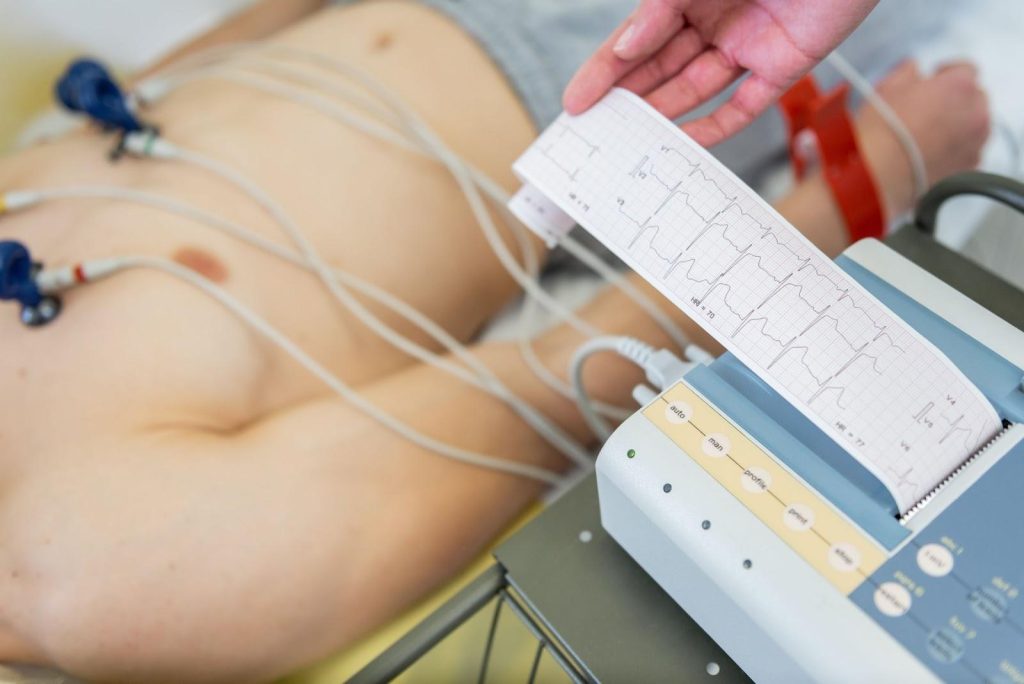Table of Contents

Hitting your 30s can feel like a bittersweet milestone. You are wiser, more confident, and likely juggling a whirlwind of responsibilities. But as life shifts gears, so does your body. This decade often marks the beginning of subtle changes in health — changes that, if caught early, can help you stay ahead of the curve for years to come. While it’s easy to get swept up in career goals, family life, or personal aspirations, taking a moment to prioritise your health can make all the difference.
Think of your 30s as the foundation-building phase for your long-term well-being. Just like you plan for the future in other aspects of life, regular health screenings are a proactive way to ensure your body is ready to support your ambitions. These screenings aren’t just about addressing current concerns — they are about prevention, early detection, and giving you peace of mind.
This guide provides an overview of the key health screenings to consider in your 30s, designed to help you prioritise your well-being.

1. General Health Screenings
As a doctor, one of the first things I tell my patients in their 30s is that this is the decade where prevention is key. Many health conditions, like hypertension, high cholesterol, and even diabetes, can develop silently during this time without any noticeable symptoms. That’s why regular health screenings are so crucial — they allow us to detect and address these issues early, often before they become serious.
When we talk about general health screenings, we are not just ticking boxes; we are creating a baseline for your health. For example, tests for blood pressure, cholesterol levels, and blood sugar help us identify risks for cardiovascular disease or diabetes. These are common conditions that, if caught early, can be managed effectively through lifestyle changes or medication.
Another thing to keep in mind is that your screening should be personalised. Family history, lifestyle factors, and even your work environment play a role in determining which tests are most relevant for you. For instance, if you have a family history of heart disease or diabetes, you should start screenings earlier or do them more frequently.
I always remind my patients that these check-ups aren’t just about finding problems — they are about creating a roadmap for better health. They give us a chance to talk about diet, exercise, and stress management, which are just as important as the numbers on a lab report.
2. Cardiovascular Health
In your 30s, I often notice patients starting to ask more questions about their heart health, and rightly so. This is the decade when the effects of years of habits — whether good or bad — begin to show. It’s not uncommon to see slightly elevated blood pressure or cholesterol levels during this time, often without any symptoms. That’s why I encourage regular check-ups and simple screenings to ensure we catch any changes early. These small steps can make a big difference in keeping your heart healthy and your future bright.
Blood Pressure Monitoring
Did you know high blood pressure, or hypertension, is often called the “silent killer”? ([1] It rarely shows symptoms until it has caused significant damage to your heart or other organs. Monitoring your blood pressure during routine check-ups can detect hypertension early, and allow timely intervention through lifestyle changes or medications. These simple screenings can prevent complications like heart disease or stroke.

Cholesterol Level Assessment
A lipid profile test is another essential screening in your 30s [2]. Elevated cholesterol, particularly LDL (bad cholesterol), can lead to plaque build-up in your arteries, which significantly increases the risk of heart attacks and strokes. If your cholesterol levels are higher than recommended, we can work together to develop a plan involving dietary changes, exercise routines, or medications to bring them under control.
Cardiac Screening Procedures at Ardennes Health
At Ardennes Health, we and our partner clinics offer a comprehensive range of cardiac screening procedures to evaluate your heart health thoroughly:
- Electrocardiogram (ECG): Records the heart’s electrical activity to detect conditions such as arrhythmias and ischaemia.
- Echocardiogram (ECHO): Provides detailed images of the heart’s structure and function, often used to assess the heart valves and chambers.
- 2D Echocardiography (2DE): Offers two-dimensional images of the heart, helping detect structural abnormalities.
- CT Angiogram: A non-invasive imaging test that visualises blood vessels to identify blockages or abnormalities in the arteries.
- Treadmill Exercise Test (TMX): Monitors heart activity during physical exertion to identify potential coronary artery diseases or other heart-related conditions.

Laboratory Investigations for Cardiac Risk
In addition to imaging tests, we recommend specific lab investigations to gain a comprehensive understanding of your cardiovascular health:
- Cardiac Risk Profile: Includes advanced markers like homocysteine, Apo A1, Apo B, and the Apo A1/B ratio [3].
- Diabetic Profile: Tests like HbA1c and fasting blood glucose to assess blood sugar levels, as diabetes is a significant risk factor for heart disease [4].
Whether you’re navigating a high-stress career, adjusting to parenthood, or simply working towards a healthier lifestyle, regular cardiac screenings are invaluable. These tests are not just for those with a family history of heart disease — they are for anyone who values their well-being. By prioritising these screenings now, you are building a solid foundation for a strong and healthy heart in the decades ahead.
3. Cancer Screenings
When it comes to cancer, early detection is your best defence. Many of my patients in their 30s ask whether it’s too soon to start thinking about cancer screenings. My answer is always the same: it’s never too early to prioritise your health, especially if you have a family history or other risk factors. Let me explain why these screenings matter and which ones you should consider.
Breast Cancer Screening
In your 30s, taking a proactive approach to breast health is essential, particularly if you have a family history of breast cancer or other risk factors. Routine mammograms are typically recommended starting at age 40 for women at average risk, but for those with a higher risk, earlier screenings may be necessary [5]. It’s always best to discuss your individual risk factors and screening plan with your healthcare provider.
For women in their 30s, breast ultrasounds can be a helpful option. This imaging technique uses sound waves to examine breast tissue and can detect abnormalities such as lumps or cysts. For those looking for additional and comprehensive screening methods, the Mastocheck Early Breast Cancer Screening is a valuable tool. This non-invasive blood test utilises proteomics-based early diagnostic technology to detect early-stage breast cancer. It’s particularly beneficial for women who may not yet need routine mammograms or who want an extra layer of reassurance.

Multi-Cancer Early Screening
Many people think cancer screenings are limited to specific types of cancer, but that’s no longer the case. With advancements in technology, we now have tests like LucenceINSIGHT that can screen for multiple cancers using a single blood sample. This test is a powerful tool for detecting cancers that are often asymptomatic in the early stages, such as pancreatic or ovarian cancer.
I recommend this test to anyone with a family history of cancer or to those who want a thorough evaluation of their health. LucenceINSIGHT helps us detect signals of cancer even when one is asymptomatic. This helps us detect issues early and act quickly, making it an excellent example of how modern medicine is transforming preventive care.
Cancer screenings aren’t about waiting for something to go wrong — they are about staying one step ahead. Whether it’s through a mammogram, Mastocheck, or LucenceINSIGHT, these tools help us identify risks early, giving you more options and better outcomes.
Summary
Entering your 30s is a turning point — a decade where proactive health choices can significantly shape your future well-being. By now, you have learned about the essential health screenings that address different aspects of your health: general health check-ups, cardiovascular assessments, and cancer screenings. But the key message is this: take action.
Health screenings aren’t just medical procedures; they are opportunities. Opportunities to catch silent health risks early, to make informed decisions, and to take preventive steps that can save you from future complications. This is your chance to build a foundation for a healthier, more resilient life — not just for yourself but for those who depend on you.
At Ardennes Health, we understand that taking the first step can sometimes feel overwhelming. That’s why we are here to make the process as efficient and supportive as possible. Whether it’s helping you choose the right screenings or guiding you through your results, our goal is to empower you to prioritise your health confidently. Schedule an appointment with us for your health screenings today.
References
- Research, C. for D. E. and. (2024). High blood pressure–understanding the silent killer. FDA. https://www.fda.gov/drugs/special-features/high-blood-pressure-understanding-silent-killer
- Lee, Y., & Siddiqui, W. J. (2025). Cholesterol levels. In StatPearls. StatPearls Publishing. http://www.ncbi.nlm.nih.gov/books/NBK542294/
- Bodde, M. C., Hermans, M. P. J., Jukema, J. W., Schalij, M. J., Lijfering, W. M., Rosendaal, F. R., Romijn, F. P. H. T. M., Ruhaak, L. R., van der Laarse, A., & Cobbaert, C. M. (2019). Apolipoproteins A1, B, and apoB/apoA1 ratio are associated with first ST-segment elevation myocardial infarction but not with recurrent events during long-term follow-up. Clinical Research in Cardiology, 108(5), 520–538. https://doi.org/10.1007/s00392-018-1381-5
- Sherwani, S. I., Khan, H. A., Ekhzaimy, A., Masood, A., & Sakharkar, M. K. (2016). Significance of hba1c test in diagnosis and prognosis of diabetic patients. Biomarker Insights, 11, 95–104. https://doi.org/10.4137/BMI.S38440
- omlinson-Hansen, S. E., Budh, D. P., & Sapra, A. (2025). Breast cancer screening in the average-risk patient. In StatPearls. StatPearls Publishing. http://www.ncbi.nlm.nih.gov/books/NBK556050/
Short By:
Recent Posts
-
June 12, 2025
Pap Smear Guide in Singapore: Your Complete Guide to Cervical Health 2025
-
April 30, 2025
Flu Vaccinations in Singapore: Who Needs Them and Why?
-
February 20, 2025
I’ve Hit My 30s — What Health Screenings Should I Go For? Answered By a Doctor
-
February 11, 2025
Comprehensive Health Screening Guide in Singapore: Which Screening Should You Get?


